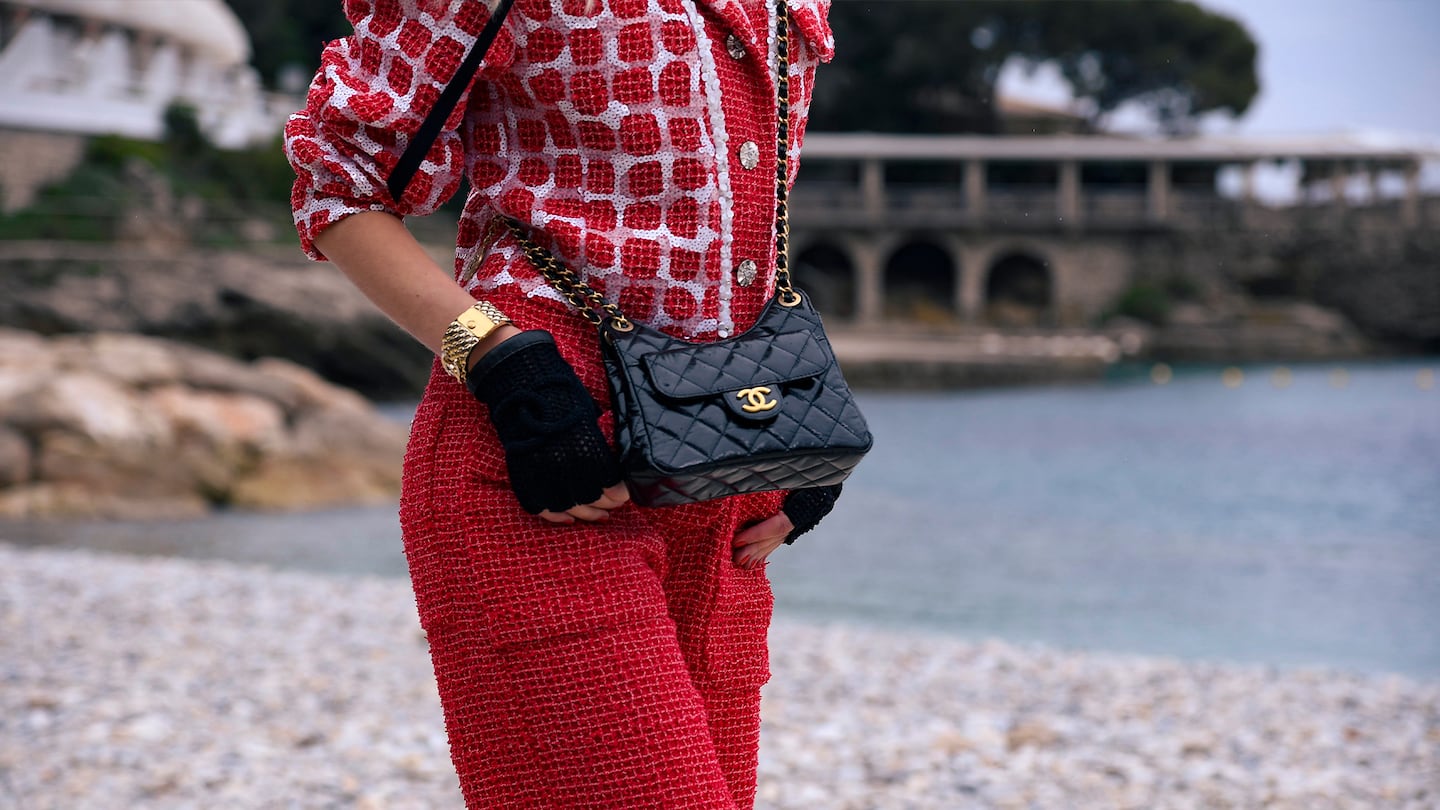
The Business of Fashion
Agenda-setting intelligence, analysis and advice for the global fashion community.

Agenda-setting intelligence, analysis and advice for the global fashion community.

Chanel reported 2021 revenues that jumped 50 percent year-on-year to $15.6 billion, rising 23 percent over 2019′s pre-pandemic levels. Operating profit nearly tripled, surging 170 percent to $5.5 billion.
Fashion, watches and jewellery are driving momentum that has continued into the current year, chief financial officer Philippe Blondiaux said in an interview, while performance in fragrance and beauty has been more muted due to the continued decline in travel retail.
Despite headwinds including coronavirus lockdowns in China, Russia’s invasion of Ukraine and soaring inflation, Chanel remains “confident in being able to deliver a solid performance and healthy growth this year,” Blondiaux said.
The statement by the closely-held brand (which generates the luxury industry’s second-highest revenues after LVMH’s flagship Louis Vuitton) confirmed a rapid rebound from the pandemic. 2020 sales fell by 18 percent, a heavy hit, but bounced back quickly last year as consumers flocked to blue-chip luxury brands.
ADVERTISEMENT
Chanel’s sales grew far faster than the wider luxury market, and roughly one-third slower than rival leather goods powerhouse Hermès, which grew to 33 percent over pre-pandemic levels.
Growth was driven by a “balanced” mix of price increases and higher volumes, Blondiaux said. Since the pandemic, Chanel has raised prices repeatedly, citing volatile exchange rates and the rising cost of materials and labour. A Maxi 2.55 flap handbag now costs $10,000, in line with Hermès’ hand-stitched Birkin and Kelly styles, versus less than $7,000 in 2019.
Chanel spent a whopping $1.8 billion on marketing in 2021, up 32 percent, underscoring how the brand’s nearly-unrivalled scale and spending power fuels its strong performance.
The company also deployed $758 million in capital investments including the acquisition of a new building for its San Francisco flagship, a boutique in Miami’s Design District, and adding as many as 50 stand-alone boutiques for its fragrance and beauty division.
Those stores, as well as online sales of cosmetics that grew 32 percent last year, could push Chanel’s historically wholesale-driven beauty division to become majority direct-to-consumer within a few years.
“The direction is toward more of a direct-to-consumer [beauty] business … though it depends on the region,” Blondiaux said. While wholesalers like Sephora and Marrionnaud remain very relevant in Europe, the share of wholesale in the US (where the pandemic accelerated the decline of department stores) has dropped significantly.
Apart from entry-level luxuries like beauty, fragrances and eyewear, Chanel famously remains the fashion industry’s last e-commerce holdout, refusing to sell its core fashion and handbags online. But it’s nonetheless invested in digital initiatives to “support customer experience,“ the company said, including rolling out tools for booking appointments, virtual try-on and after-sales service.
“We are not, and will not, sell fashion or watches online,” Blondiaux said. Still, the company sees digital “as playing a key role in customer interaction. We are making a lot of investments in digital tools to connect with consumers and offer services online.”
ADVERTISEMENT
Overall, Chanel has earmarked an additional $1 billion in capital expenditures for 2022.
As sales continue to surge, the company remains committed to maintaining a tight store network — it presently has only 250 fashion boutiques, compared with roughly twice as many locations for Louis Vuitton or Gucci.
Blondiaux concedes that the combination has at times led to congestion and long waits in stores. The company plans to boost customer service by hiring more than 3,500 new employees, including many sales associates, he said.
Chanel also plans to open separate, private boutiques dedicated to serving top-spending clients, starting with locations in key Asian cities by early 2023.
While it’s unclear how that move will go over with first-time and occasional buyers who are ready to fork over $10,000 for a bag, Chanel won’t be the first player to open special stores for high-spenders as luxury brands race to cater to their VICs (very important customers). Brunello Cucinelli also opened a dedicated store for private clients in New York last December.
“Our biggest preoccupation is to protect our customers and in particular our pre-existing customers,” Blondiaux said. “We’re going to invest in very protected boutiques to service clients in a very exclusive way.”
Chanel’s statement marked just the fifth time the company has released its annual revenues and profit publicly, after regrouping its financial and legal operations in London. The shake-up, which the company said was aimed at reinforcing governance and transparency, as well as the move to appoint a new chief executive, Leena Nair, last December, have sparked speculation that the company is gearing up for a sale or IPO.
It’s a plot the company continues to deny: “It’s a firm ‘No’,” Blondiaux said. “Our model is so strong that why would we change our path?”
The former CFDA president sat down with BoF founder and editor-in-chief Imran Amed to discuss his remarkable life and career and how big business has changed the fashion industry.
Luxury brands need a broader pricing architecture that delivers meaningful value for all customers, writes Imran Amed.
Brands from Valentino to Prada and start-ups like Pulco Studios are vying to cash in on the racket sport’s aspirational aesthetic and affluent fanbase.
The fashion giant has been working with advisers to study possibilities for the Marc Jacobs brand after being approached by suitors.